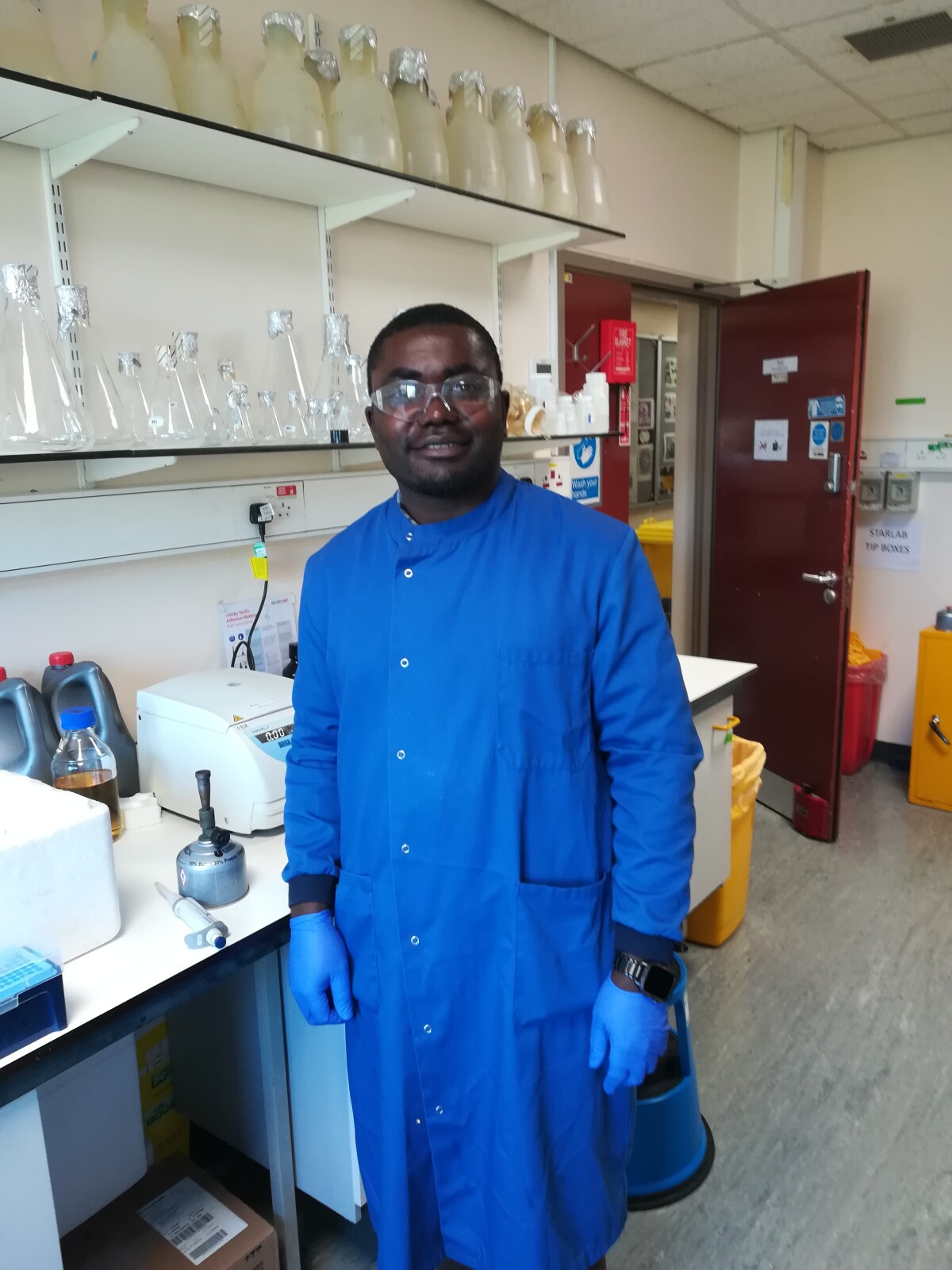From Lab Bench to Global Health Impact: My Cambridge ALBORADA Research Journey

Developing a Vaccine Candidate for Onchocerciasis at Cambridge University
By Dr Robert Adamu Shey, University of Buea, Cameroon
A Dream Opportunity Realized
When I received the news about the selection of my research proposal for the Cambridge Africa ALBORADA Research Grant, I could hardly believe it. The unique opportunity to conduct cutting-edge research on onchocerciasis vaccine development at Cambridge University, to me, was a dream come true – and the beginning of what I am certain would be a meaningful contribution towards the current global health efforts towards onchocerciasis control.
The Challenge: Tackling River Blindness
Onchocerciasis, also known as river blindness, currently affects about 21 million people worldwide, with 99% of cases occurring in Africa. Caused by the parasitic worm Onchocerca volvulus and transmitted through blackfly bites, the disease can lead to severe skin disease, visual impairment, and irreversible blindness. The disease has also been associated with mental, psychological, and developmental deficiencies, especially in youths and children. Despite decades of control efforts through mass drug administration with Mectizan, a preventive vaccine remains elusive and desperately needed, especially in the context of the current elimination goal.
Research Focus: Virus-Like Particles as Vaccine Platforms
My project focused on developing a virus-like particle (VLP)-based vaccine for onchocerciasis. VLPs offer several advantages as a vaccine platform, including safety, immunogenicity, versatility, and stability. VLPs play a key role in several vaccines, including the current malaria vaccines, RTS,S and R21.
The Cambridge Experience: Where Innovation Meets Tradition
Stepping into the historic city of Cambridge was both humbling and inspiring. The centuries-old architecture of some of the university’s buildings stood as a testament to generations of scientific discovery. In addition, the state-of-the-art laboratories at the Department of Pharmacology and the Department of Biochemistry, where my research work was conducted, buzzed with cutting-edge research that I am convinced would eventually shape the future of medicine.
Collaborative Spirit and Global Perspectives
One of the most enriching and exciting aspects of my time at Cambridge was the very collaborative environment. Working alongside researchers from diverse backgrounds and working on different projects provided invaluable perspectives on the versatility of the SpyCatcher-SpyTag VLP system employed in my project. Regular lab meetings and seminars exposed me to cutting-edge research across various fields. The Cambridge Africa Programme's emphasis on fostering partnerships between African and Cambridge researchers creates a unique platform for impactful collaborative research.
Looking Forward: From Research to Reality
While my time at Cambridge has concluded, with a successful stay at Cambridge University, the research continues. The preliminary results show promise, with VLPs successfully reacting with the target antigen. The next phase of the research activities will be executed in Cameroon.
Reflections and Gratitude
This experience has been really transformative both scientifically and personally. The Cambridge Africa ALBORADA Research Grant didn't just provide funding – it opened doors for me to world-class facilities, mentorship from a leading scientist (Prof. Mark Howarth), and collaboration with a network of researchers committed to addressing different global health challenges.
The opportunity to contribute to vaccine development for onchocerciasis, which affects millions of people, especially in underserved communities, has reinforced my commitment to research that matters. Every minute spent in the lab and every experiment performed is worthwhile when viewed through the lens of potential impact on human health. I eagerly look forward to this.
The Road Ahead
As I return home, I carry with me not just new scientific knowledge and technical skills, but also a renewed sense of purpose in my research work. The fight against onchocerciasis is far from over, but projects like this – bridging cutting-edge science with urgent global health needs – offer hope.
The VLP-based vaccines we're developing may still be years away from reaching patients, but every step forward brings us closer to a world where river blindness is preventable. I am also excited about the possibility of using the skills I have acquired in the development of vaccines for other diseases. This vision, supported by partnerships like the Cambridge-Africa ALBORADA Research Grant, continues to drive our work forward.

